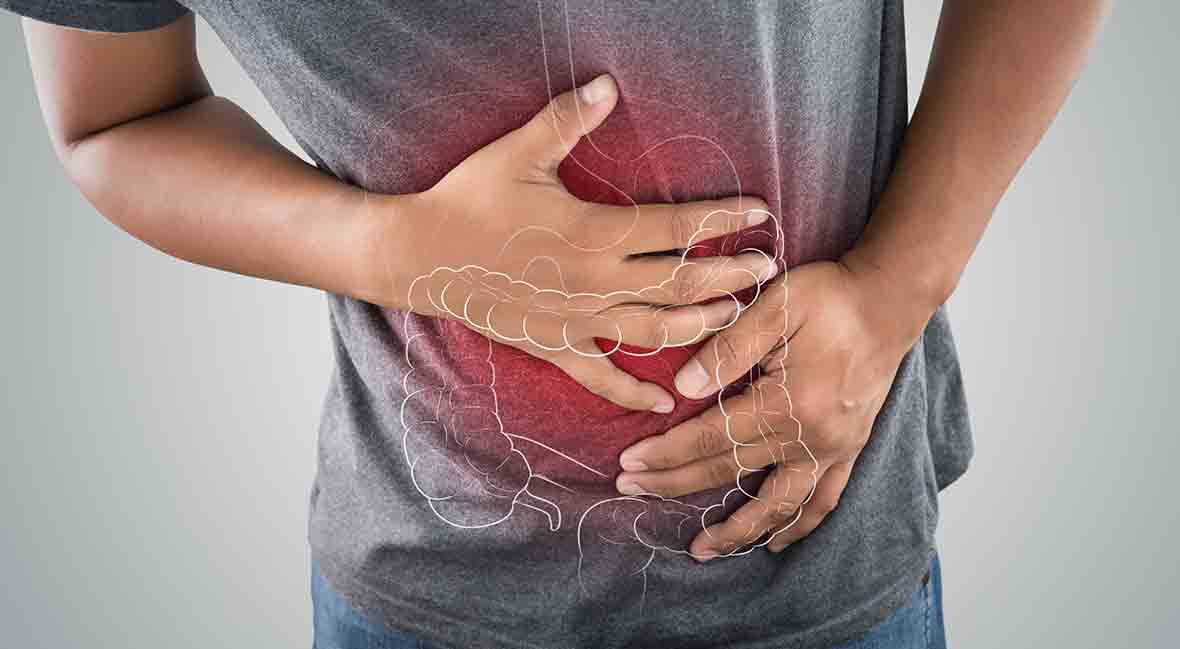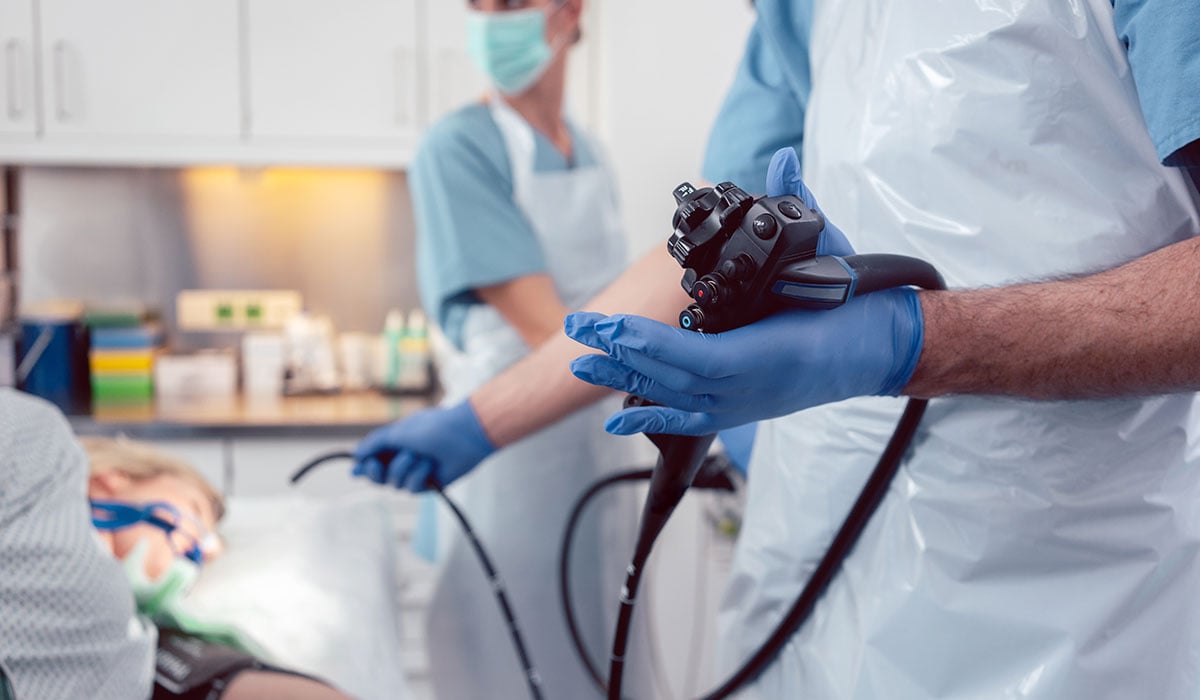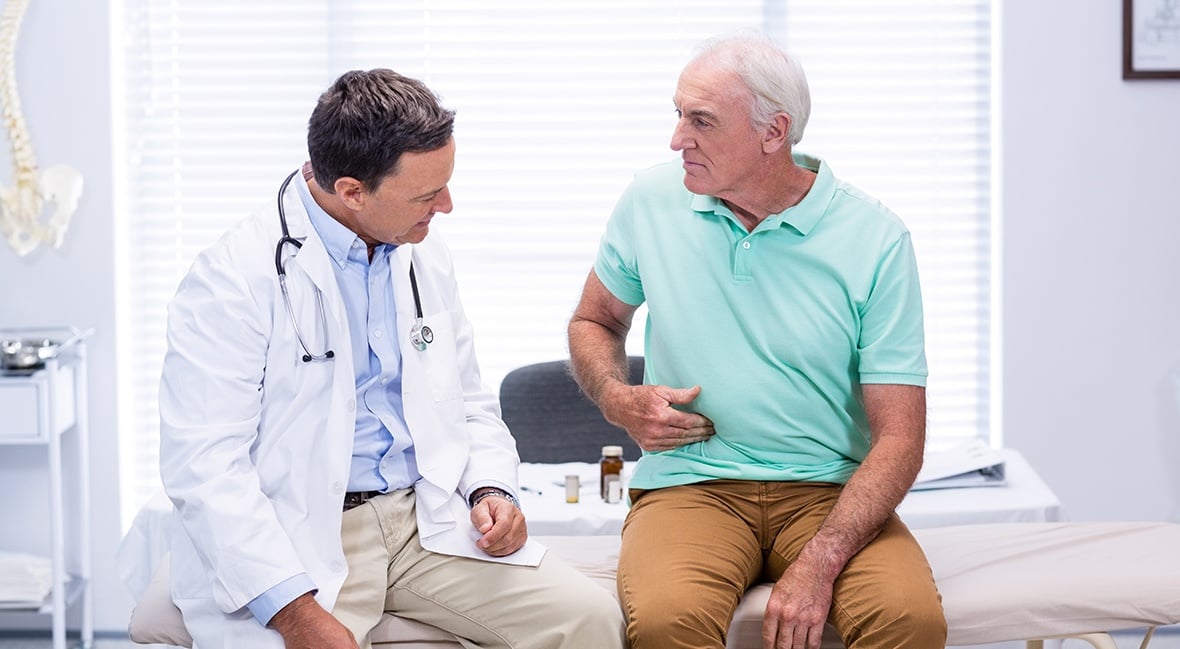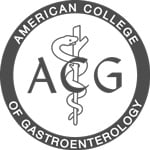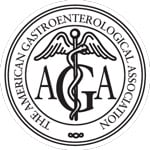Ulcerative colitis (UC) is one of two common forms of inflammatory bowel disease (IBD). The other is Crohn's disease. Both are chronic conditions—there is no cure for IBD—with some important differences. While Crohn's may affect any portion of the gastroinstestinal tract, for example, ulcerative colitis tends to only impact the innermost lining of the colon (large intestine) and rectum.
Ulcerative Colitis Symptoms: Overview
Ulcerative colitis symptoms can vary, depending on the severity of inflammation and where it occurs. Signs and symptoms may include:
- Bloody Stool
- Abdominal Discomfort
- Diarrhea
- Weight Loss as a Result of a Loss of Appetite
- Fatigue
- Stunted Growth in Children
- Fever
- Constant, Urgent Need to Defecate
Diagnosing Ulcerative Colitis
If the above symptoms sound familiar, schedule a consultation with your doctor and be sure to disclose all your symptoms. Your medical history, a physical examination, and several tests will then help determine if IBD could be causing your discomfort. If after your consultation, UC is suspected, your doctor will administer diagnostic tests to verify whether your symptoms are caused by an infectious disease, or IBD.
One of two procedures may be used to differentiate between causes:
- Sigmoidoscopy
- Colonoscopy
Sigmoidoscopy is different from colonoscopy in that it can only see into the lower colon, whereas a colonoscopy expands visibility to include the entire colon.
Once UC is confirmed, the next step is to figure out what type you have. There are four main categories of UC, with particular symptoms for each:
1. Ulcerative Proctitis: Inflammation Is Limited to the Rectum Only
Symptoms of Ulcerative Proctitis:
- Rectal Bleeding/Pain
- Inability to Pass Bowels
2. Proctosigmoiditis: Inflammation Affects the Rectum & Sigmoid Colon, the Lowest Portion of the Large Intestine
Symptoms of Proctosigmoiditis:
- Diarrhea
- Bloody Stool
- Frequent Urge to Defecate
- Abdominal Pain/Cramping
3. Left-Sided Colitis: Inflammation Extends as Far as the Bend on Left Side of Small Intestine, Known as Splenic Flexure (Located Near the Spleen)
Symptoms of Left-Sided Colitis:
- Diarrhea
- Bloody Stool
- Pain/Cramping on Left Side of Abdomen
- Weight Loss
4. Pan-Ulcerative Colitis: Inflammation Is Spread Throughout Entire Colon
Symptoms of Pan-Ulcerative Colitis:
- Diarrhea
- Bloody Stool
- Abdominal Pain/Cramping
- Fatigue
- Weight Loss
Causes
There is no singular, definitive cause of any form of IBD. Researchers currently believe that the development of UC depends on a confluence of factors—namely, genetics, immune system malfunction, and environmental variables. Diet and stress were once thought to be likely causes, but research confirms those assumptions as false. Although diet and stress can certainly exacerbate UC symptoms, they are not at the heart of IBD’s pathogenesis.
Treatment
As mentioned, there is no cure for UC, but there are treatment options available to help reduce the severity of your symptoms during times of flare-ups. One or more of the following may be suggested to you following a UC diagnosis:
Medication:
If diagnosed with UC, you may be prescribed a combination of anti-inflammatory, immune modulator, and anti-diarrheal drugs. Your doctor may also recommend acetaminophen, a common pain reliever (Tylenol, for example), but you should steer clear of ibuprofen (Advil) and naproxen sodium (Aleve), as they may aggravate your symptoms. If your UC causes intestinal bleeding, you may be given iron supplements to combat anemia.
Diet:
As mentioned, diet is not to blame for activating ulcerative colitis. Certain foods do commonly provoke UC symptoms, however. Many who experience discomfort after eating will in turn eat less food daily, and diarrhea associated with UC can result in malabsorption of nutrients. Therefore, it is critical that patients with UC maintain a balanced, nutrient-rich diet.
Tolerance for particular foods with UC varies, person to person. Diet should be discussed with your physician.
Surgery:
If your UC is severe, your doctor may consider surgical removal of the colon and/or rectum—colectomy or a proctocolectomy—as possible solutions. Only a minority of patients require surgery.
How Common Is Ulcerative Colitis?
According to the Crohn’s and Colitis Foundation, more than 900,000 people may be afflicted with UC in the United States, alone. One study found that on average, ulcerative colitis patients account for more than 250,000 physician visits and 20,000 hospital visits nationwide, each year.
Think You May Have Ulcerative Colitis?
Visit Gastroenterology Associates, conveniently located adjacent to Long Island Center for Digestive Health (LICDH), a New York State-licensed non-hospital outpatient facility committed to providing high-quality colonoscopic and endoscopic services in a comfortable, welcoming environment.
An undiagnosed case of Ulcerative Colitis, or other form of IBD, could prove to be extremely disruptive to daily life, especially during inflammatory periods. At Gastroengerology Associates & LICDH, our team of physicians are all fellowship-trained specialists in digestive diseases, who offer comprehensive testing and treatment for IBD. If you think you may be dealing with Ulcerative Colitis, schedule a consultation, today.



